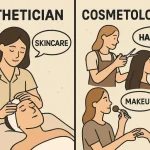When you hear the word “franchise,” most people think of fast food joints or convenience stores. And sure, those are part of it. But if you’re considering joining a franchise system, it’s not just about the brand name or the menu. It’s about what happens behind the scenes — the support, the systems, and the people who help make the whole thing run.
Honestly, a good franchise is like a safety net for new business owners. You get the name, yes. But you also get the know-how. And that’s where support systems come in: training, marketing help, and a whole bunch more. Let’s break it all down, real-talk style, no fluff.
The Real Value of Franchise Support
Most first-timers jump into franchising because they want to run a business but don’t want to build it from scratch. But what surprises many is just how much help they can get if they choose the right brand.
In a well-organized franchise, you’re not out there winging it. The parent company (the franchisor) usually has a blueprint for success, and it’s yours to follow. From day one, you’re working within a structure that’s already been tested. That kind of backup is a massive confidence booster, especially if this is your first go at running a business.
Some associations, like FLA Singapore, provide added guidance and clarity on which franchises offer meaningful support versus those that just want the sign-up fee. It’s worth checking out when you’re comparing your options.
Training: It’s Not Just a Quick Tutorial
Let’s start with training. You’d think this would be basic, like a week of onboarding and done. But nope. In the better systems, training is ongoing. There’s the upfront stuff, sure: how to operate, how to hire, how to follow the brand standards. But then there are workshops, updates, refresher courses, and even regional meetups.
Why all this? Because business changes. Customer behavior shifts. And franchises that stay relevant are the ones that make sure their owners aren’t stuck in 2012 with an outdated playbook.
Also, this isn’t just about making you a better operator. Good training makes your whole team better. Some franchisors give you access to online training portals or even send reps to coach your staff directly. That’s a big deal. You don’t want to be the only one who knows what’s going on while your team fumbles through lunch rush.
Marketing Support: The Make-or-Break Factor
Marketing is where some franchises shine and others… well, they kind of disappear. The best ones take care of the branding, national campaigns, and sometimes even your social media assets. You’ll get flyers, templates, ads, and sometimes full-on digital strategies that you can just plug and play.
But wait, not all marketing support is equal.
Some franchisors will send you general materials and say, “Figure it out.” Others help you execute — running local ads, optimizing your listings, even advising on how to run promotions that bring in foot traffic. That second kind? They’re worth their weight in gold.
And don’t underestimate the power of online presence. If you’re in a market where local visibility matters, the right franchise system will help you show up in search results, social media feeds, and community events. If that’s not happening, ask questions. A good system helps you get seen.
Operational Systems: The Quiet Engine
Okay, this one doesn’t sound sexy, but it matters. A lot.
Operational support includes the tech you use, the systems that track your inventory, your POS setup, employee scheduling tools, and even customer feedback processes. You might not care about this stuff right now, but once you’re juggling staff, orders, vendors, and bills? You will.
When your franchisor gives you a playbook — or better yet, software and dashboards that help you run your business — your life gets 10 times easier. You won’t be Googling “how to fix my cash register” at 10 p.m. after a double shift. Trust me, that kind of support keeps people sane.
Your next favorite article might be just a scroll away!
Community and Peer Support
This one flies under the radar but matters more than people realize. A strong franchise isn’t just top-down — it also has a thriving peer network. That means you can talk to other franchisees, ask questions, swap stories, and even vent when something goes sideways.
Some brands even have private forums or group chats just for owners. And the best part? These folks get it. They’ve been through the same mess you’re going through, and they’ll often have tips you won’t find in a manual.
Also, don’t ignore the value of in-person meetups, especially regional ones. That kind of networking? Invaluable. You might even discover helpful partners in unexpected places. For example, many franchise owners partner with nearby training schools or language centers for employee development, like this one, which some businesses use to level up communication skills for customer-facing staff.
What to Look for Before You Sign Anything
Let’s get real for a sec. Not all support systems are worth the fee. Some franchisors make big promises and then ghost you after you sign the contract. So, how do you know what you’re really getting?
Here’s a quick gut-check list:
- Do they offer hands-on training or just a PDF manual?
- Will someone walk you through opening day — or are you on your own?
- What’s included in your marketing support — and what will cost extra?
- Is there a hotline, help desk, or dedicated rep you can call?
- How often do they check in — quarterly, monthly, never?
- Are other franchisees happy? (Pro tip: talk to a few before you commit.)
The more transparency you get up front, the better your odds of success.
Final Thoughts
Here’s the thing: Buying into a franchise isn’t just about using a popular name or slapping a logo on a storefront. It’s about being part of a bigger system — one that should be actively helping you succeed.
If the support isn’t there, you’re not buying a business — you’re buying a headache.
So, take your time. Ask the hard questions. Dig into the fine print. And don’t be afraid to walk away from a flashy brand if the backup doesn’t match the pitch.
Because when the training is solid, the marketing help is real, and the systems actually work? You’re not just buying into a brand, you’re setting yourself up to run a business that doesn’t eat you alive.
Catch up on the latest updates anytime from 2A Magazine.







